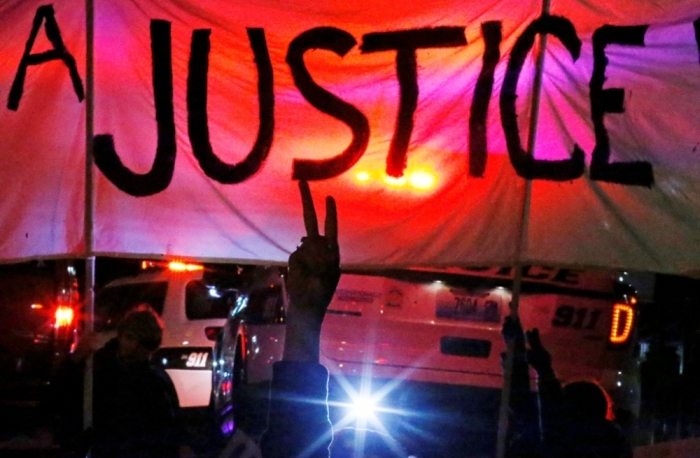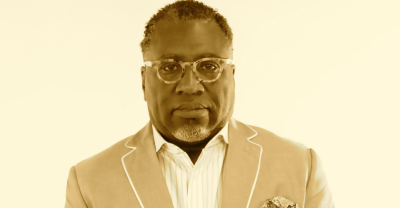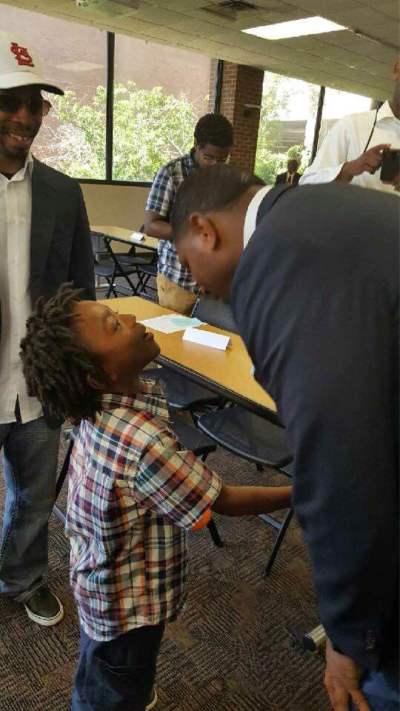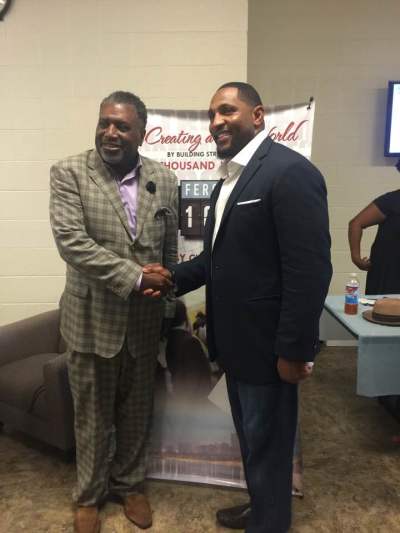After Racial Unrest, Economist Looks to Rebuild Ferguson With 1,000 Jobs Initiative

When the verdict was handed down on Nov. 24, 2014, exonerating the officer that killed Michael Brown, civil unrest erupted in Ferguson, Missouri, and many African-Americans were understandably distraught, but Lance McCarthy saw opportunity.
Right from the start, after rioters looted many minority-owned small businesses in town, McCarthy was on the scene with solutions. He and a friend who is in the plastics business were able to install clear, unbreakable, plastic windows — as opposed to plywood — in several shops to communicate to the city that they were indeed still open.
Such an act reflects not only who this man is but is itself a sort of metaphor for his life. His decades of economic and policy research have installed many proverbial windows for many to now see how God is redeeming a troubled city. McCarthy's insights into systemic poverty and its root causes have propelled him to do what he calls "the consummation of his life's work."

McCarthy, 55, is a seasoned, faith-based economist and financial advisor who first began his research endeavors in 1993 with the Sisters of Loretto and the St. Louis Economic Conversion Project.
"When the Ferguson unrest happened," recounts McCarthy in an interview Thursday with The Christian Post, "it basically was taking all of my research over the years in the community, the private sector, the government sector and look at this incident and create economic development solution coupled with all the other social solutions."
McCarthy co-founded Ferguson1000, an entrepreneurial initiative that continues to develop a platform of coordinated efforts to create jobs. Active collaboration with surrounding municipalities to find comprehensive solutions to widespread racial turmoil is key, and his efforts include corporate job development, minority business development, youth technology training, and faith-based strategies.
Though he has multiple degrees, McCarthy is not a head-in-the-clouds academic type but a master relationship builder and networker unafraid to tackle the tangle of problems that the witches brew of racial strife and poverty present.
"I realized that there are a myriad of problems but at the end of the day, people want a job to take care of their families. And so we were able to take a very negative situation and create an economic development platform that would look at all the gaps in economic development and be able to fill that," McCarthy said.

| Photo: Lance McCarthy
To that end, with Ferguson1000 McCarthy and his colleagues have scrapped the traditional job fair approach and have created "hiring events" in the community where employers gather and unemployed residents of Ferguson can actually get hired that day, provided that they pre-register, dress professionally, and do a certain amount of training and preparation.
Since the job search process is mostly online these days, such hiring events serve as a point of personal connection.
In just one year they managed to forge partnerships with more than 100 companies to offer these local events and were invited to the White House. While in Washington they hosted a lecture in conjuction with White House Technology Diversity Advisor and leading tech entrepreneurs.
Some job seekers they meet come from pretty dire circumstances but McCarthy doesn't let that deter them.
One day a lady came to one of our events and and was wearing a skimpy, inappropriate shirt, McCarthy recounted, and when we addressed the issue of her clothing she started crying.
"She said, I've just gotten out of the halfway house and this is all I have," McCarthy told CP.
"But one of our community partners was able to take her to his office, got her a professional outfit, and she was able to get a job."
Central to his operations is McCarthy's deep, abiding faith and he is quick to credit someone else for the success he has seen.
"Out of all the urban areas in America, God made it happen here in Ferguson," he says.
"My favorite scripture is, 'I consider that our present sufferings are not worth comparing with the glory that will be revealed in us (Romans 8:18). So I knew this negative situation, this was an opportunity to galvanize a community on strategy that would help us address the problems and the solutions."
McCarthy intentionally connects the Body of Christ with the work he's doing. Local congregations have provided vital services to his efforts. One of the most significant factors driving poverty is the lack of adequate transportation. McCarthy told CP of a situation where 10 to 15 people got hired at one of his hiring events but had no way to get to their new jobs.
"But every church has a van!" he said. "So we created Shepherd's Transportation, also known as 'Church-Uber,' so people were able to walk to the church rather than back and forth to work ... and eventually, if those new hires stay on the job long enough we then help them get a car," he added.

McCarthy attends Covenant of Life Christian Center in St. Louis led by Anthony Trice, whom McCarthy describes as an enthusiastic "pastor-preneur." During Sunday services McCarthy frequently shares what's going on with Ferguson1000 and speaks from his deep knowledge of black business history.
CP asked McCarthy what has been the most challenging aspect to this initiative.
"Because this is new and innovative, not everyone understands, and some want to stay in the old model."
But the lack of understanding is but a small bump in the road given where McCarthy and his team are headed. Already he and his colleagues at Ferguson1000 are looking to replicate what they have built in Ferguson.
This year they aim to implement a similar initiative in Baltimore where they have connected with Ray Lewis, former linebacker for the Ravens and who is himself a man of deep faith, who is playing a vital role in their operations there. They are also aiming to create something similar in Orlando and Cleveland this year, and by 2017 their goal is to expand to 10 different cities.
"I truly believe that if everyone has an opportunity, particularly those in the African-American community, if they are empowered, it helps everyone. It's so fulfilling to me to not only see people get jobs but see minority businesses grow. As I researcher I've told people about this a lot but as an organization, through Ferguson1000, it's actually being seen."
"When you see someone get a job and have the ability to take care of their families, you can't put that into words. It's so so awesome." McCarthy said.
For more information about Ferguson1000, click here.




























